Worms in Dog Stool – Identification and Treatment
How Long Do Worms Live in Dogs? Key Facts and Insights
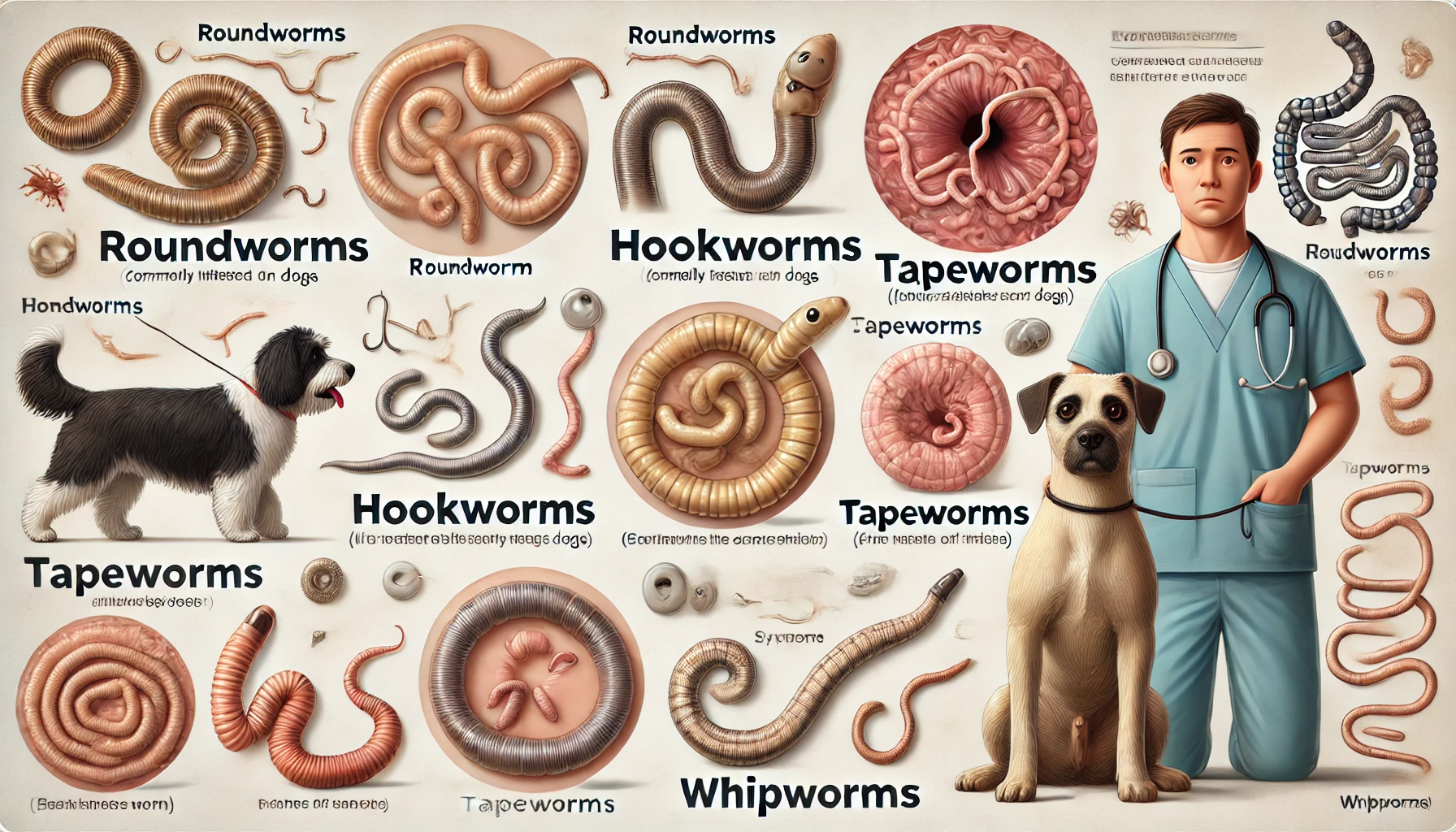
Introduction As a devoted dog parent, ensuring your furry friend’s health and well-being is a top priority. One of the common but often overlooked health issues in dogs is worm infestations. These pesky parasites can cause a range of health problems, from digestive disturbances to severe anemia, especially in puppies. Recognizing the signs of worm infestations and knowing how to effectively treat and prevent them is essential for maintaining your dog’s health. Worms in dog stool can be alarming for any pet owner, but understanding the different types of worms and their symptoms can help you take prompt action. This guide will walk you through the various types of worms that commonly infect dogs, the symptoms to watch out for, and the best treatment and preventive measures. By staying informed and proactive, you can ensure your dog stays happy, healthy, and free from these unwelcome parasites.
Section 1: Types of Worms Commonly Found in Dogs
Roundworms: Identify and Prevent Dog Worms
| Round Worms | |
|---|---|
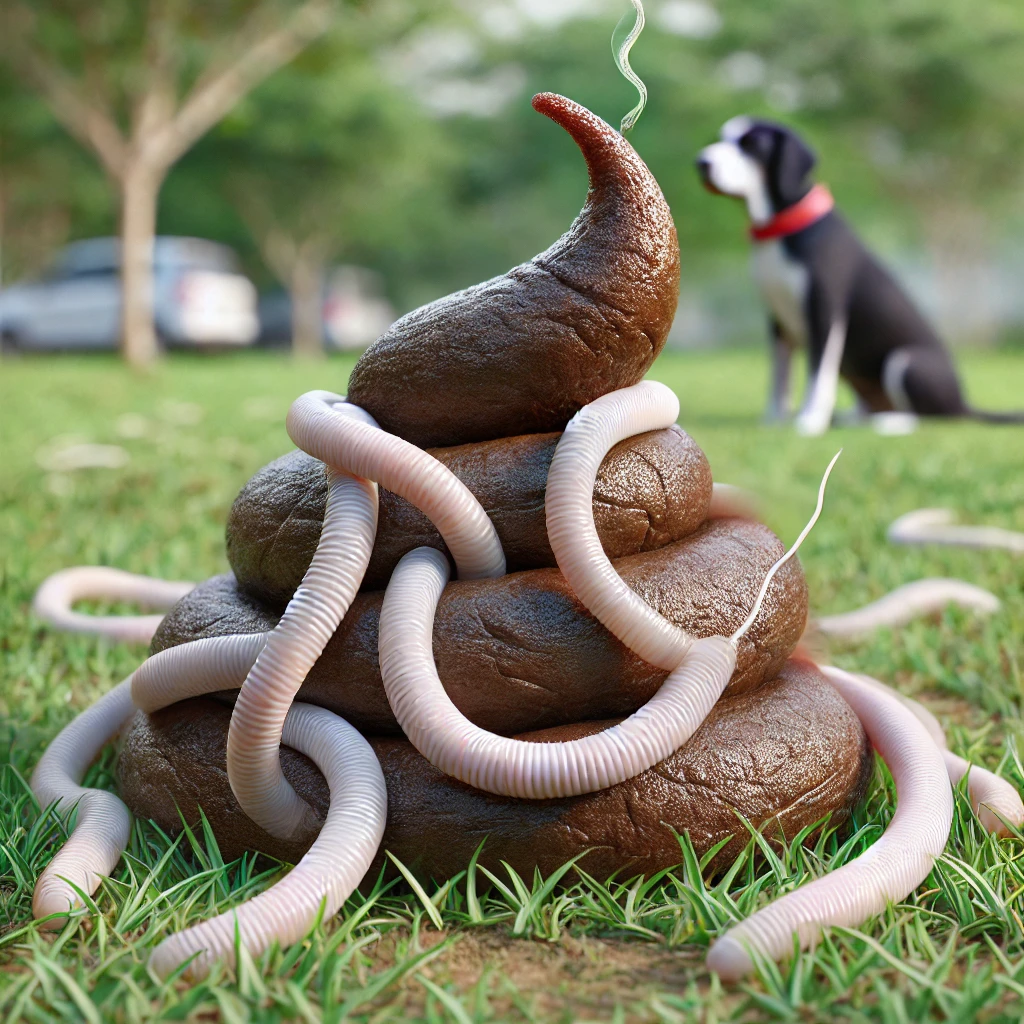 |
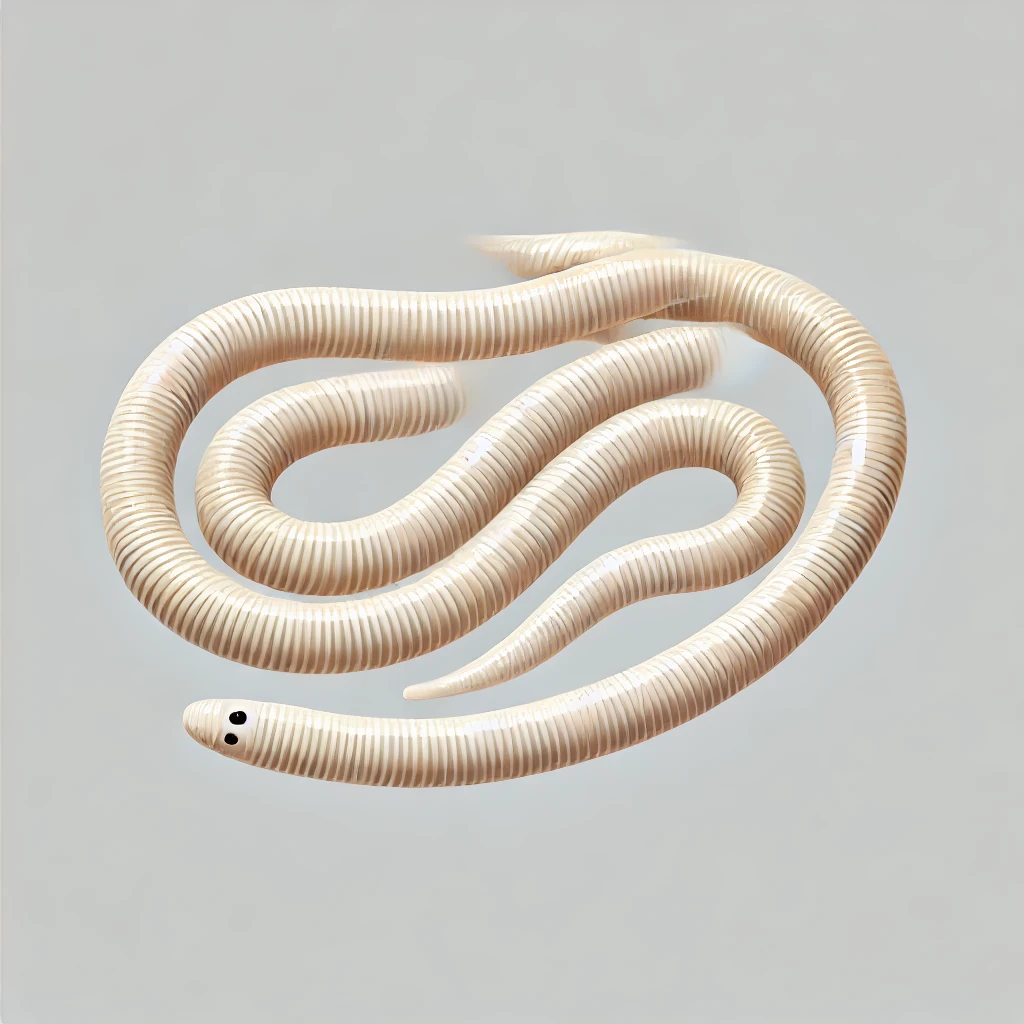 |
Roundworms Roundworms are among the most frequently encountered intestinal parasites in dogs, especially in puppies. These worms are long, white, and resemble spaghetti, often growing several inches in length. Puppies can contract roundworms from their mother, either in utero or through her milk. Additionally, dogs can become infected by ingesting contaminated soil or feces. Symptoms of roundworm infestation include a pot-bellied appearance, vomiting, diarrhea, and visible worms in the stool. For visual reference, you can search for pictures of dog worms to help identify these parasites. Regular deworming, especially in young puppies, is crucial to prevent and treat roundworm infections.
Hookworms: Recognize Signs of Worms in Dogs’ Poop
| Hookworms | |
|---|---|
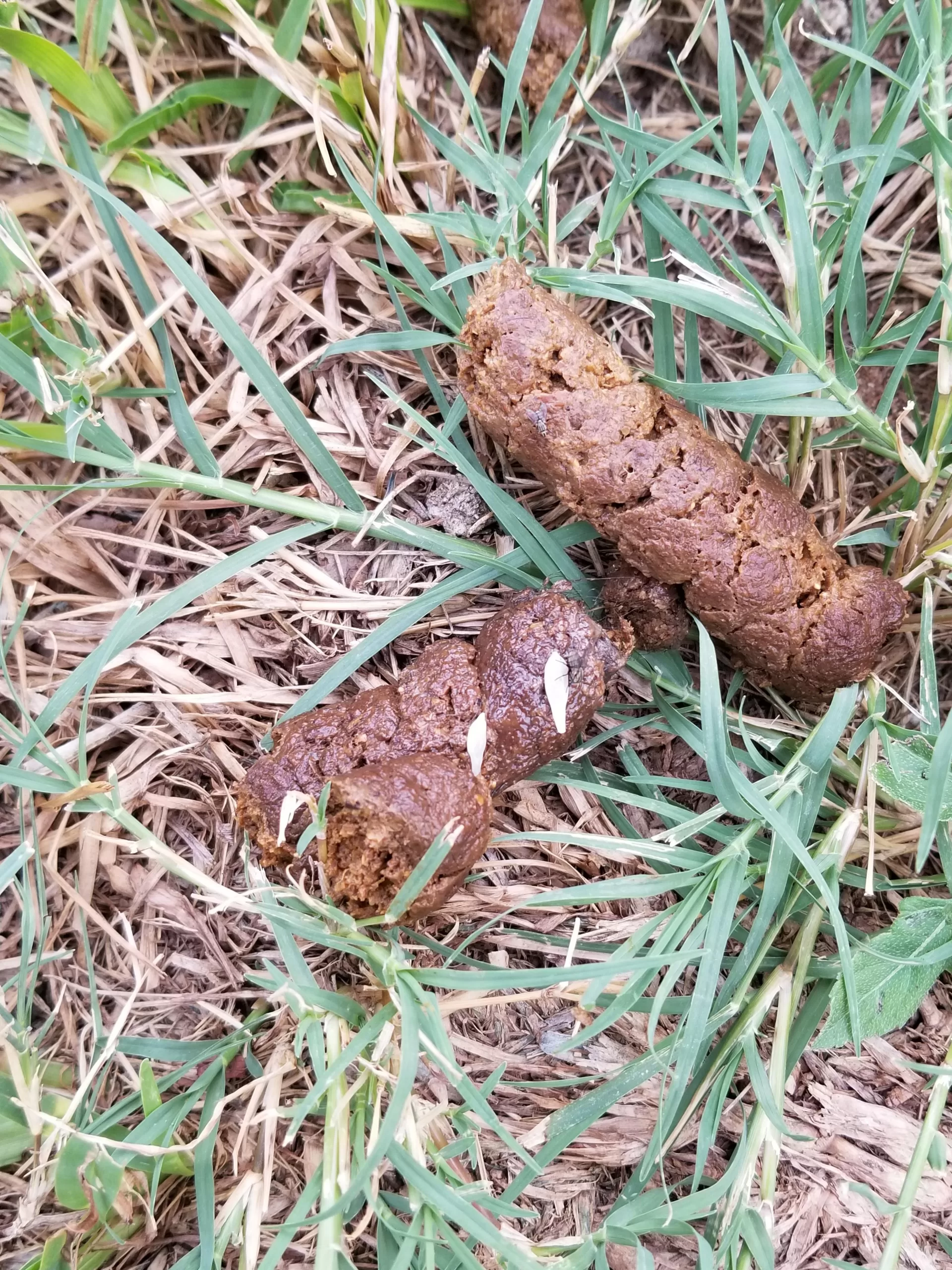 |
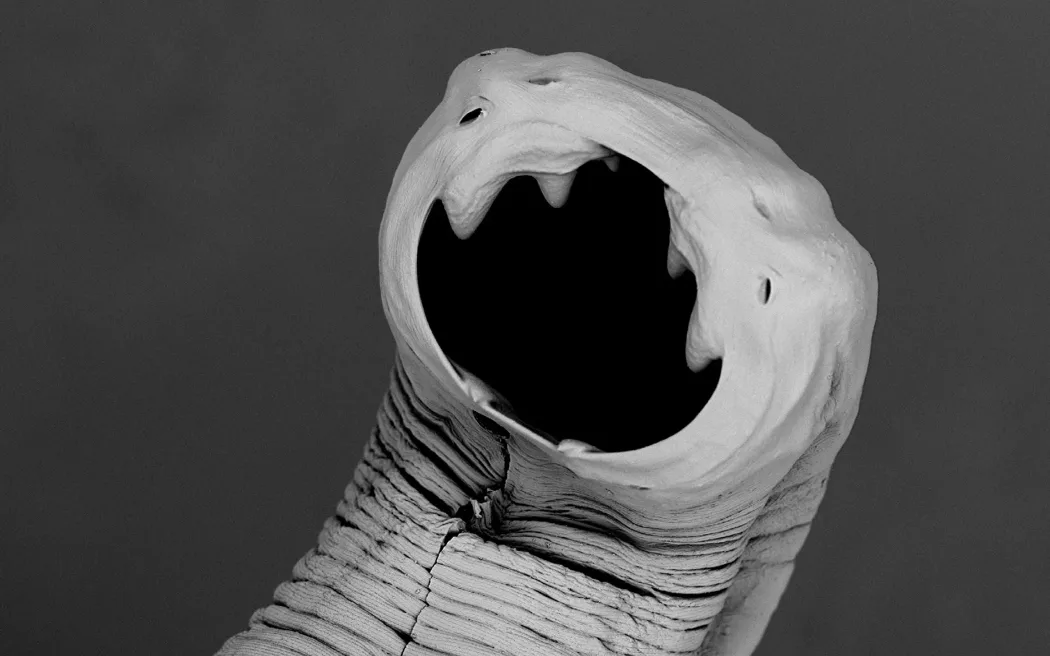 |
Hookworms are tiny but dangerous parasites that attach to the intestinal lining and feed on your dog’s blood. Unlike roundworms, hookworms can be contracted through both ingestion and skin penetration, often from contaminated soil. This makes puppies and dogs that frequent parks or outdoor areas particularly susceptible. Hookworm infestations can lead to severe anemia, especially in puppies, due to blood loss. Symptoms include pale gums, weakness, weight loss, and bloody diarrhea. Prompt treatment with appropriate deworming medication is essential to manage hookworm infections and prevent serious health complications. If you observe any signs of worms in dog poop, immediate action should be taken.
Tapeworms: What Do Tapeworm Eggs Look Like?
| Tape Worms | |
|---|---|
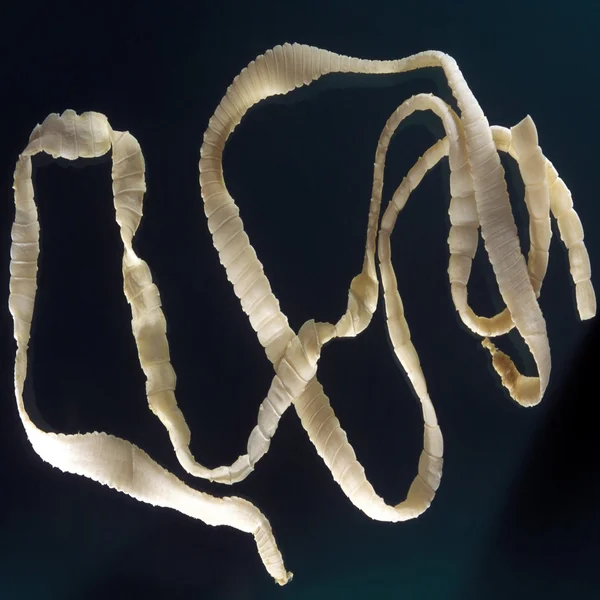 |
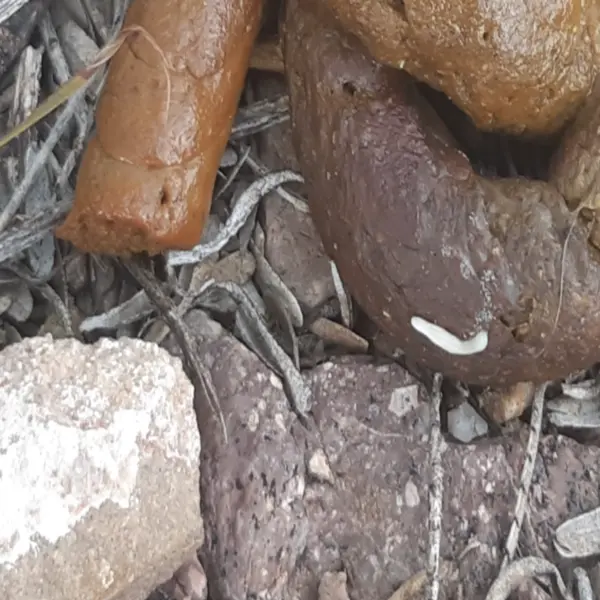 |
Tapeworms Tapeworms are flat, segmented worms that can grow several feet long, residing in the dog’s intestines. Dogs typically become infected with tapeworms by ingesting fleas that carry tapeworm larvae. This can happen during grooming or by ingesting infected rodents. Tapeworm segments, which look like grains of rice, are often visible around the dog’s anus or in their feces. While tapeworms are not as harmful as other worms, they can cause discomfort and itching around the anal area. Effective flea control and regular deworming are key to preventing tapeworm infestations. Knowing what do tapeworm eggs look like can help in early identification.
Combat Whipworms: Effective Strategies for Your Dog’s Health
| WhipWorms | |
|---|---|
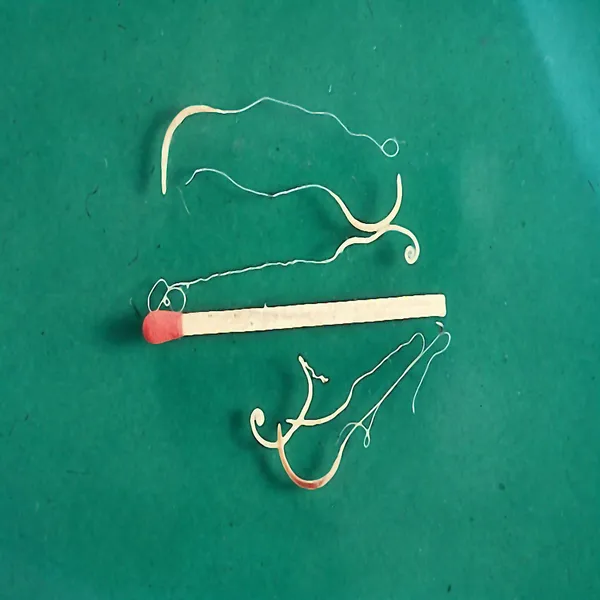 |
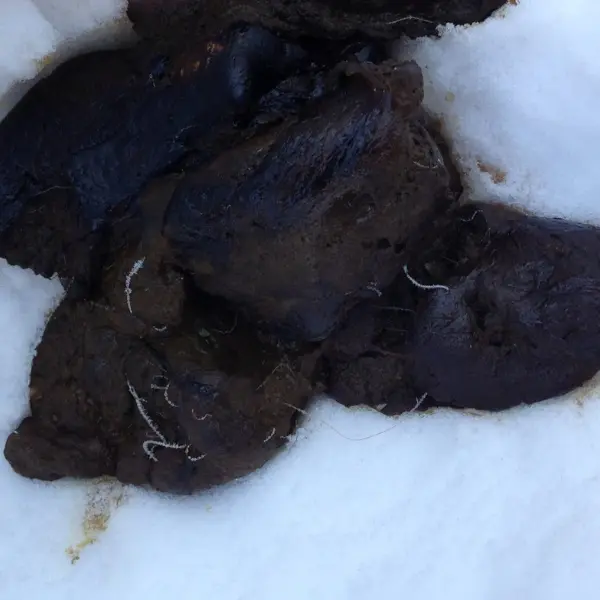 |
Whipworms Whipworms are thin, whip-like worms that inhabit the cecum and colon of dogs. These parasites are less common but can cause significant gastrointestinal issues, including chronic diarrhea, weight loss, and general debilitation. Dogs usually contract whipworms by ingesting contaminated soil or feces. Whipworm eggs are incredibly resilient and can survive in the environment for years, making reinfection a concern. Regular fecal examinations and appropriate deworming treatments are necessary to manage and prevent whipworm infestations.
By understanding the different types of worms that can affect your dog, you can better protect your furry friend from these harmful parasites. Regular veterinary check-ups, routine deworming, and maintaining a clean living environment are essential steps in ensuring your dog’s health and happiness.
Section 2: Symptoms and Diagnosis
Visible Signs in Stool: Identify Maggots in Dog Poop
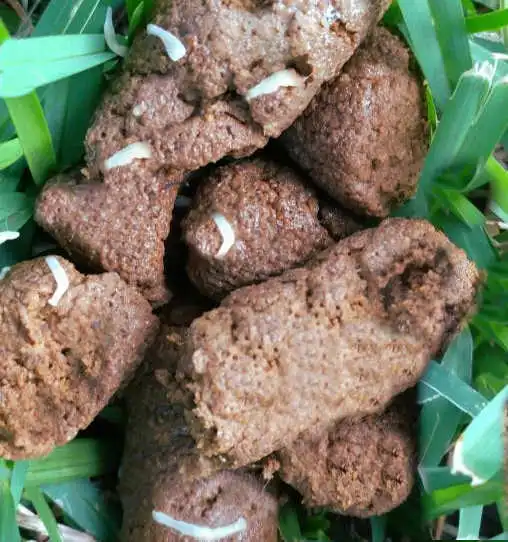
Visible Signs in Stool One of the most direct and noticeable signs of a worm infestation in dogs is the presence of worms or worm segments in the stool. Roundworms often appear as long, white, spaghetti-like strands that can be several inches long. Tapeworm segments resemble grains of rice and may be seen around the dog’s anus or in their feces. Hookworms and whipworms, due to their smaller size, may not be as easily visible. However, their presence can still cause noticeable changes in the dog’s stool, such as the presence of blood or mucus. For better identification, look for pictures of dog worms to compare with what you observe. Regularly checking your dog’s stool for these signs can help in early detection and treatment. Additionally, it’s crucial to differentiate between actual parasites and other unusual findings. For instance, sometimes debris or other objects, like slug poop, can be mistaken for worms.
Behavioral Changes: Recognize Symptoms of Hookworms in Dogs

Behavioral Changes Worm infestations can cause a variety of behavioral changes in dogs, reflecting the discomfort and health issues they experience. Dogs with worms may show signs of increased appetite but still lose weight, as the parasites consume the nutrients meant for the dog. They might also exhibit signs of abdominal discomfort, such as frequent licking or biting at their stomachs. Other behavioral changes include lethargy, decreased activity levels, and a generally poor coat condition. Puppies, in particular, may have a pot-bellied appearance and fail to thrive. Monitoring these behavioral changes can provide important clues about a potential worm infestation. Knowing the difference between roundworm vs hookworm symptoms can also aid in diagnosis.
Veterinary Tests: Check for Hookworm in Dogs’ Poop

Veterinary Tests While visible signs and behavioral changes are helpful indicators, a definitive diagnosis of worm infestations often requires veterinary tests. Veterinarians can perform fecal examinations, where a sample of the dog’s stool is analyzed under a microscope to identify the presence of worm eggs or larvae. This is a common and reliable method for diagnosing intestinal worms such as roundworms, hookworms, tapeworms, and whipworms. In some cases, blood tests may be necessary, especially for detecting heartworms or other less common parasites. These tests help determine the type and extent of the infestation, guiding the appropriate treatment plan. For instance, identifying hookworm in dog poop can be crucial for targeted treatment.
Regular veterinary check-ups and fecal examinations are crucial in maintaining your dog’s health. Early detection and treatment of worm infestations can prevent serious health complications and ensure your furry friend remains healthy and happy.
Section 3: Treatment Options
Over-the-Counter Medications: Tackling Hookworms vs Roundworms

Over-the-Counter Medications Over-the-counter (OTC) medications are readily available and can be a convenient first line of defense against common intestinal worms in dogs. These medications often come in the form of tablets, chews, or liquids and are effective against roundworms, hookworms, and sometimes tapeworms. When choosing an OTC dewormer, it is crucial to follow the dosage instructions carefully based on your dog’s weight and age. Some popular active ingredients in OTC dewormers include pyrantel pamoate, fenbendazole, and praziquantel. While these medications can be effective, they may not cover all types of worms or severe infestations. Therefore, it’s always wise to consult with a veterinarian before starting any treatment to ensure it’s suitable for your dog’s specific needs. It is also important to note the difference between hookworms vs roundworms to choose the right medication.
Prescription Treatments: How Long Do Worms Live?

Prescription Treatments For more severe worm infestations or for worms that are not effectively treated by OTC options, prescription medications from your veterinarian are the best course of action. Prescription dewormers are typically more potent and can target a broader range of parasites. These medications may include combinations of active ingredients that are not available over the counter, ensuring a more comprehensive treatment. Some common prescription dewormers include ivermectin, milbemycin oxime, and moxidectin. Your veterinarian will prescribe the most appropriate medication based on the type of worms identified and the severity of the infestation. Prescription treatments often require follow-up visits to ensure the worms are completely eradicated and to monitor your dog’s recovery.
Natural Remedies and Alternative Treatments: for Worms
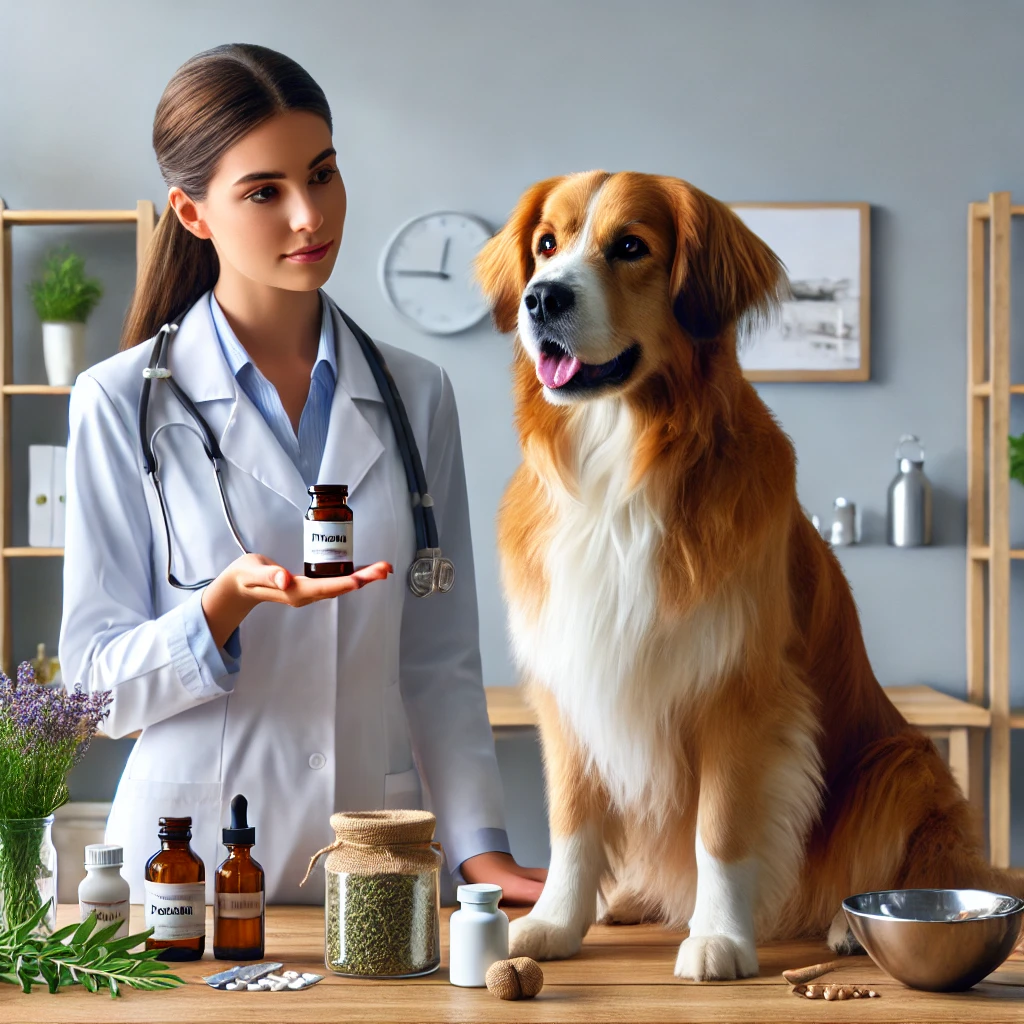
Natural Remedies and Alternative Treatments In addition to conventional medications, some pet owners explore natural remedies and alternative treatments for managing worm infestations. Natural dewormers can include ingredients like pumpkin seeds, which contain cucurbitacin, a compound known to paralyze worms, or diatomaceous earth, which is believed to dehydrate and kill parasites. Other holistic approaches may involve using herbs like wormwood and cloves, which have antiparasitic properties. While some pet owners report success with these natural remedies, it’s important to approach them with caution and ideally under the guidance of a veterinarian. Natural treatments may not be as consistently effective as pharmaceutical options and improper use could lead to incomplete eradication of the worms or potential harm to your dog. Additionally, it’s crucial to ensure that what you’re treating is indeed a worm infestation.
Follow-Up and Monitoring: Watch for Black Bugs in Dog Poop

Follow-Up and Monitoring Effective treatment of worm infestations doesn’t end with the administration of medication. Follow-up care is essential to ensure that the worms are completely eliminated and to prevent re-infestation. This often involves a second round of deworming a few weeks after the initial treatment to kill any remaining worms or newly hatched larvae. Regular fecal examinations are recommended to confirm that the treatment has been successful. Additionally, monitoring your dog’s health and behavior during and after treatment is crucial. Any persistent symptoms or new signs of illness should be promptly reported to your veterinarian. Maintaining a clean living environment, practicing good hygiene, and continuing preventive measures can help keep your dog free from future worm infestations. Observing for unusual findings like black bugs in dog poop can also help in early detection of new infestations.
By understanding and implementing these treatment options, you can effectively manage and eliminate worm infestations in your dog, ensuring their continued health and well-being. Regular communication with your veterinarian and adherence to prescribed treatment plans are key to successful outcomes.
Section 4: Preventive Measures
Regular Deworming Schedule: Prevent Hookworm in Dogs’ Poop
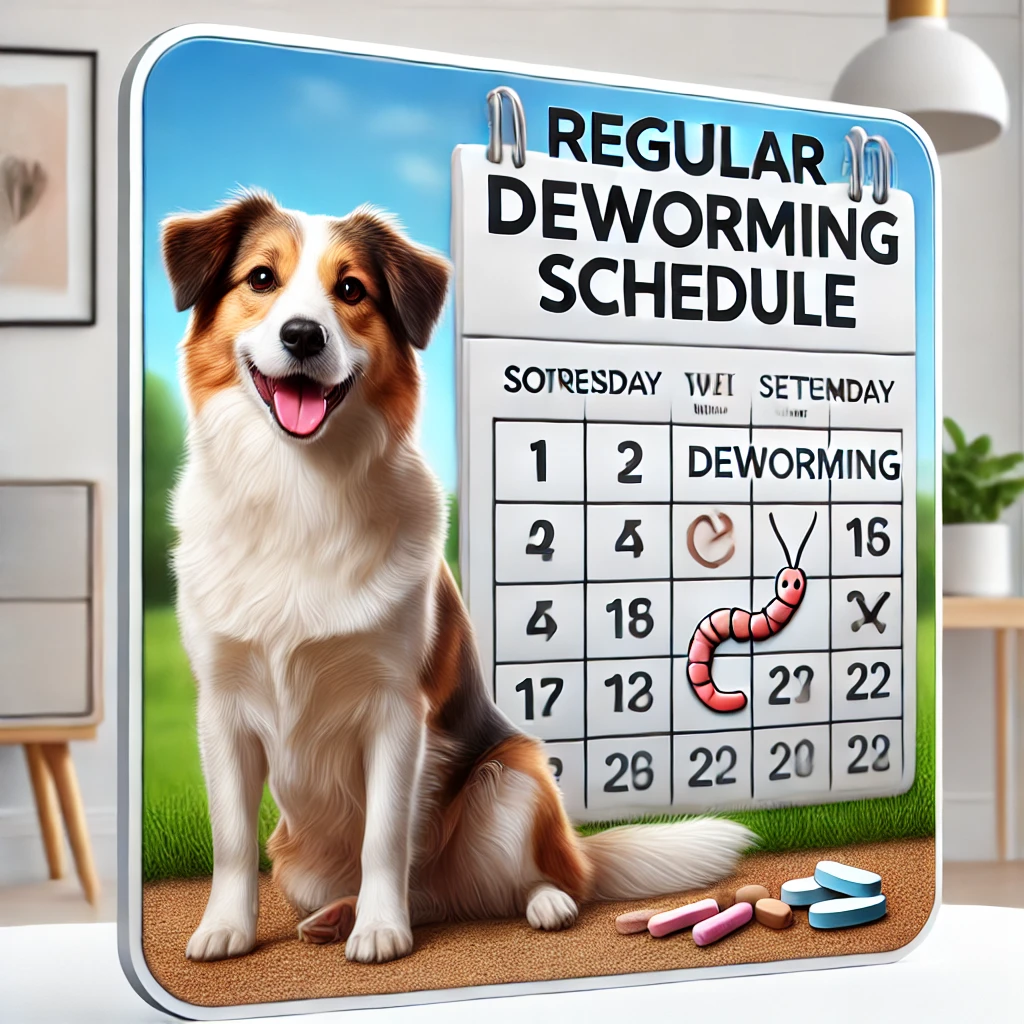
Regular Deworming Schedule Establishing a regular deworming schedule is one of the most effective ways to prevent worm infestations in dogs. Deworming should start early in a dog’s life, with puppies typically requiring treatment every two to three weeks until they reach 12 weeks of age. After this initial period, dogs should be dewormed every three to six months, depending on their lifestyle and risk factors. Dogs that spend a lot of time outdoors, in parks, or in contact with other animals may require more frequent deworming. Regular deworming helps to eliminate any existing worms and prevent the lifecycle of the parasites from continuing. Consult with your veterinarian to determine the best deworming schedule for your dog based on their specific needs and risk factors.
Hygiene and Cleaning: Eliminate Signs of Worms in Dogs’ Poop
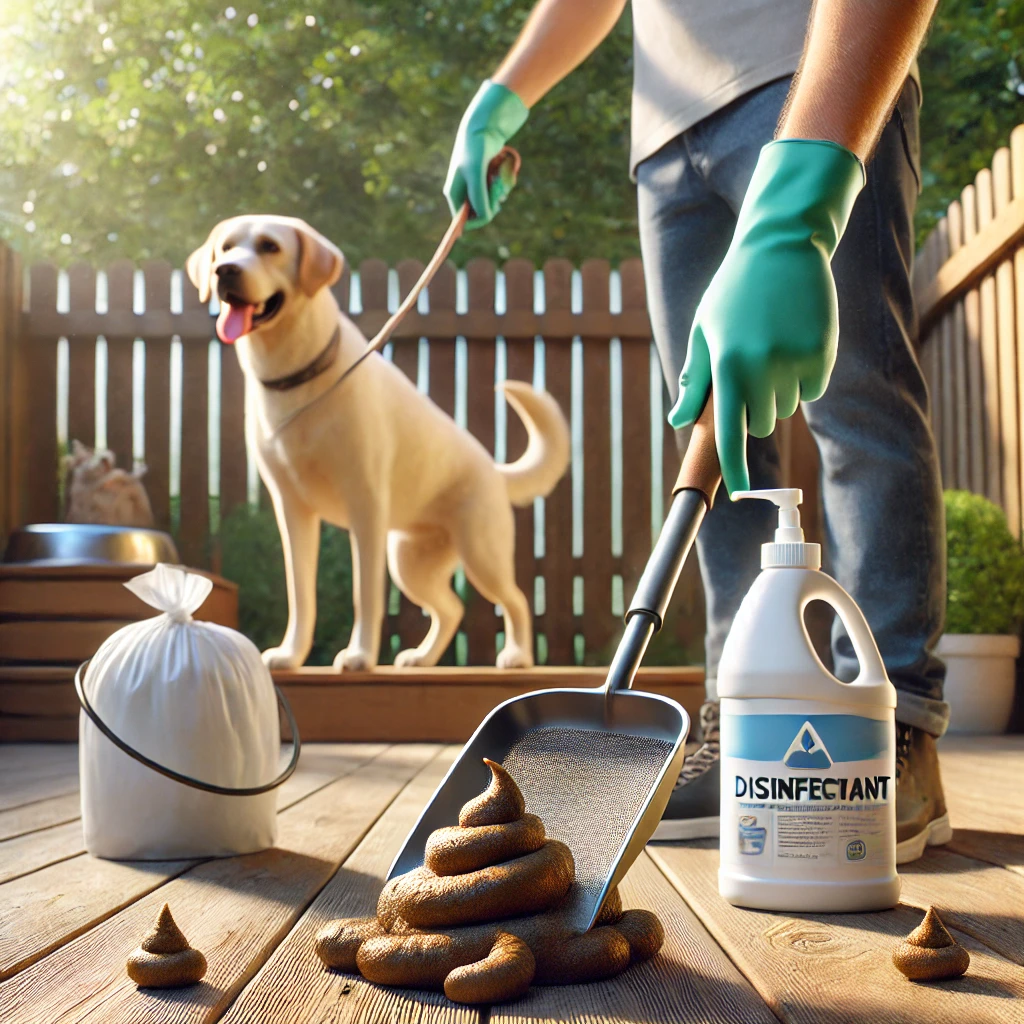
Hygiene and Cleaning Maintaining good hygiene and cleanliness is crucial in preventing worm infestations. Regularly cleaning your dog’s living environment, including their bedding, toys, and feeding areas, helps to reduce the risk of contamination. Always pick up and properly dispose of your dog’s feces promptly, especially in public areas like parks where other dogs can be exposed. This practice not only prevents the spread of worms but also helps maintain a clean environment for all pets. Additionally, practicing good personal hygiene, such as washing your hands thoroughly after handling your dog or cleaning up after them, can prevent the transmission of parasites to humans.
Flea Control: Avoid Tapeworms in Dog Poop
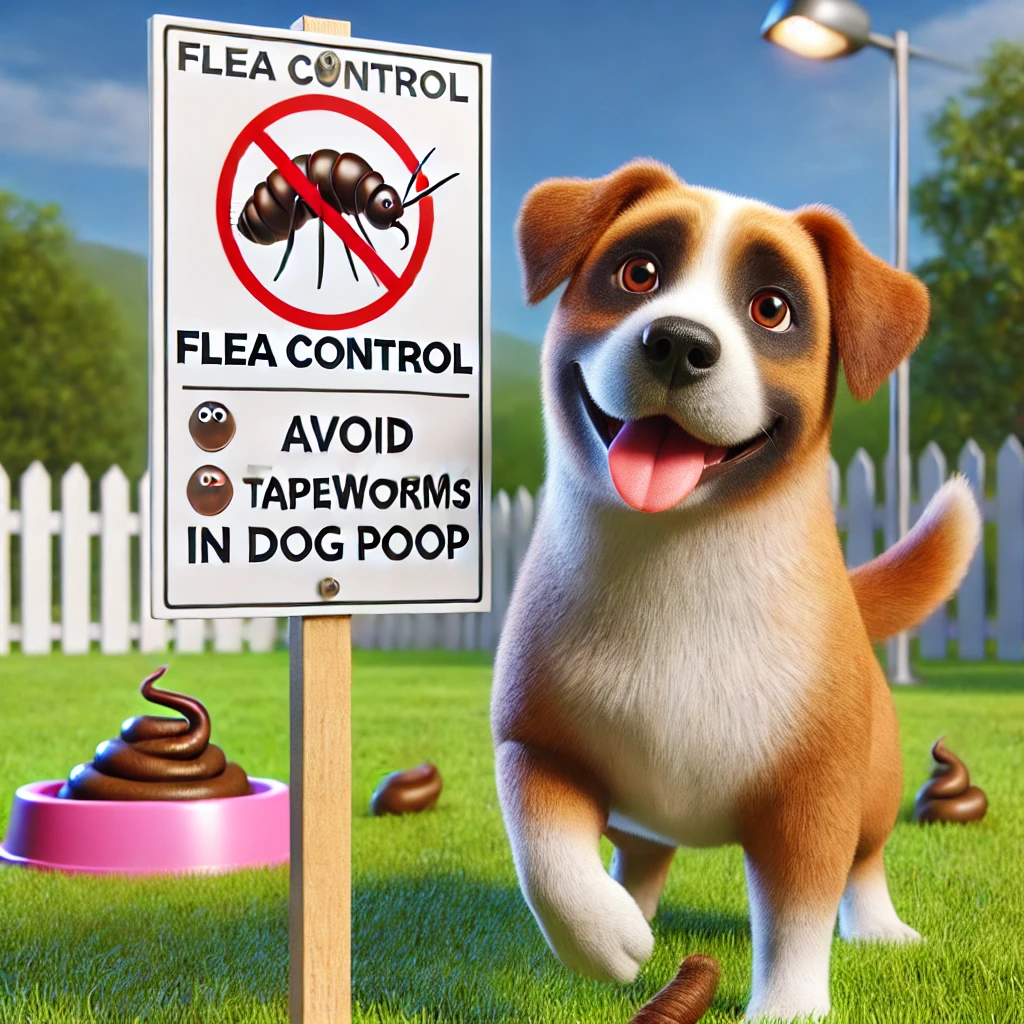
Flea Control Effective flea control is essential in preventing tapeworm infestations, as fleas are a common carrier of tapeworm larvae. Regularly using flea prevention products such as topical treatments, oral medications, or flea collars can help keep your dog free from fleas. It’s also important to treat your home and yard for fleas, as they can thrive in the environment and reinfest your dog. Regularly vacuuming carpets, washing pet bedding, and using flea sprays or foggers can help control flea populations in your home. By keeping fleas at bay, you significantly reduce the risk of tapeworm infestations.
Diet and Immunity Support: Strengthen Against Worm Infestations

Diet and Immunity Support A well-balanced diet is crucial for maintaining your dog’s overall health and boosting their immune system. A strong immune system can help your dog resist infections, including worm infestations. Ensure your dog receives a diet rich in essential nutrients, including proteins, vitamins, and minerals. Some pet owners also opt for supplements such as probiotics and omega-3 fatty acids to support their dog’s digestive health and immune function. Consult with your veterinarian to determine the best dietary plan for your dog and consider incorporating foods or supplements that can enhance their natural defenses against parasites.
Avoiding Contaminated Areas: Prevent Black Leech-Like Worms
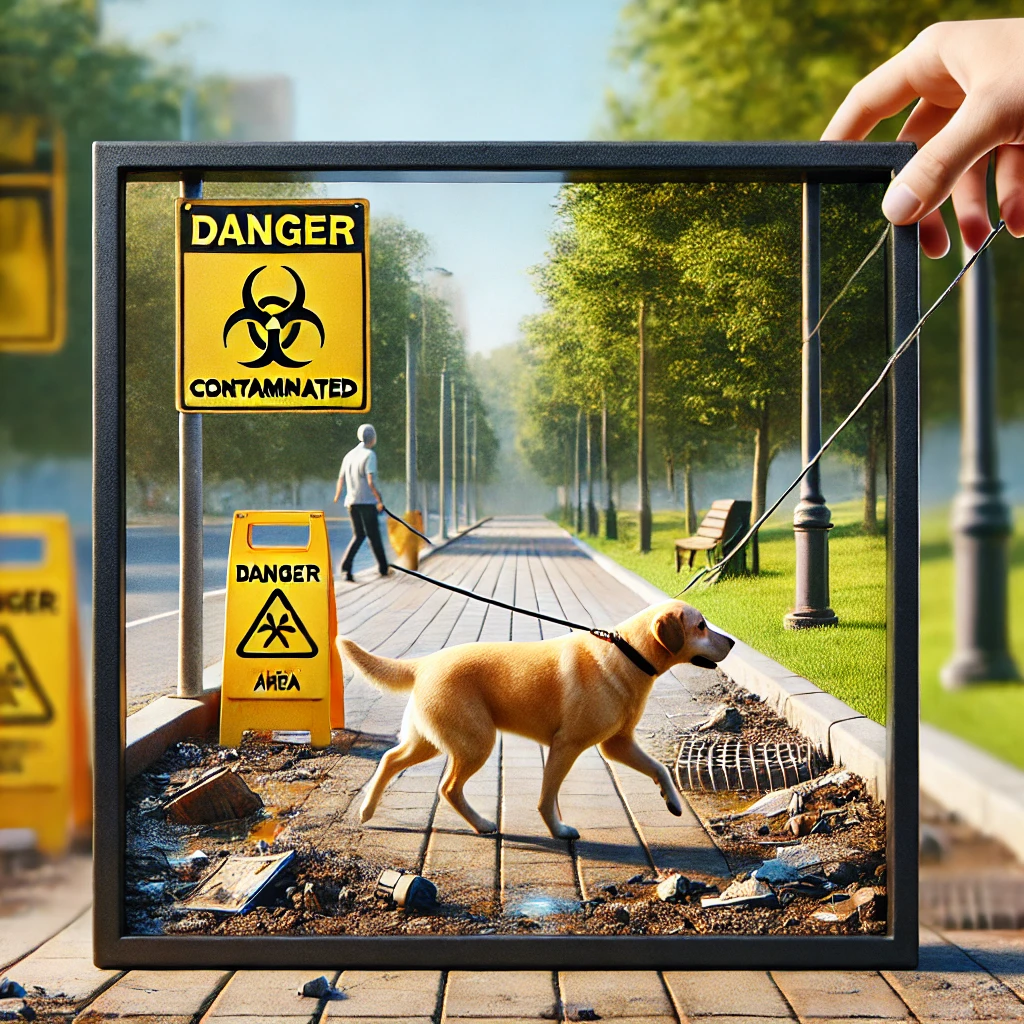
Avoiding Contaminated Areas Limiting your dog’s exposure to areas known to be contaminated with parasites can help prevent worm infestations. Avoid letting your dog roam in areas with high concentrations of other animals’ feces, such as dog parks or communal yards, where the risk of contracting worms is higher. Additionally, discourage your dog from drinking standing water or scavenging for food outdoors, as these behaviors can increase their exposure to parasites. Keeping your dog on a leash during walks and supervising their activities can help minimize their risk of encountering contaminated environments. Watch out for unusual findings like black leech-like worms that may indicate an issue.
Regular Veterinary Check-ups: Detect Signs Early

Regular Veterinary Check-ups Routine veterinary check-ups are essential for monitoring your dog’s health and catching any potential issues early. During these visits, your veterinarian can perform fecal examinations to check for the presence of worm eggs or larvae and recommend appropriate preventive measures. Regular check-ups also provide an opportunity to discuss your dog’s overall health, diet, and lifestyle, allowing for tailored advice on keeping your dog free from parasites. By maintaining a close relationship with your veterinarian, you can ensure your dog receives the best possible care and stays healthy and worm-free.
By following these preventive measures, you can significantly reduce the risk of worm infestations in your dog. Regular deworming, maintaining good hygiene, effective flea control, a balanced diet, and routine veterinary care are all essential components of a comprehensive approach to parasite prevention. Taking these proactive steps will help ensure your dog remains healthy, happy, and free from the discomfort and health risks associated with worms.
Conclusion

Preventive care and routine veterinary visits are essential in managing and preventing worm infestations in dogs. By staying vigilant and proactive, pet owners can ensure their dogs lead healthy, worm-free lives. Regular check-ups, a proper deworming schedule, and maintaining good hygiene practices are key components of effective worm prevention and treatment. By implementing the strategies outlined in this guide, you can protect your beloved canine companion from the discomfort and health risks associated with worms. Always consult your veterinarian for personalized advice and treatment plans tailored to your dog’s specific needs. Remember, early detection and intervention are crucial to ensuring your dog’s health and well-being.
As a passionate dog owner, you undoubtedly care deeply about every aspect of your furry friend’s life, including their diet. For those who love to cook and want to provide their dogs with the best nutrition possible, consider checking out my book, The A-to-Z Cookbook for Healthy Homemade Dog Food. This comprehensive guide offers a wide range of delicious and nutritious recipes that cater to your dog’s dietary needs. From tasty treats to balanced meals, The A-to-Z Cookbook for Healthy Homemade Dog Food provides you with the tools to make healthy, home-cooked meals for your dog, ensuring they receive all the essential nutrients they need to thrive. Investing in your dog’s health goes beyond just treating and preventing parasites. A balanced diet, regular exercise, and lots of love and attention are all part of raising a happy, healthy dog. So, don’t miss out on The A-to-Z Cookbook for Healthy Homemade Dog Food a must-have resource for any dedicated dog parent looking to take their dog’s nutrition to the next level. Together, let’s make sure our dogs live their best lives, free from worms and full of vitality.
Reference List
- American Kennel Club. (n.d.). Types of Dog Worms and Their Treatment. Retrieved from AKC.org
- Centers for Disease Control and Prevention. (2019). Parasites – Toxocariasis (also known as Roundworms). Retrieved from CDC.gov
- Merck Veterinary Manual. (n.d.). Intestinal Parasites of Dogs. Retrieved from MerckVetManual.com
- PetMD. (n.d.). Everything You Need to Know About Tapeworms in Dogs. Retrieved from PetMD.com
- Veterinary Partner. (2018). Hookworms in Dogs. Retrieved from VeterinaryPartner.com
- Companion Animal Parasite Council. (2020). Recommendations for Deworming Dogs and Cats. Retrieved from CAPCvet.org
- ASPCA. (n.d.). Parasites in Dogs. Retrieved from ASPCA.org
- VCA Hospitals. (n.d.). Whipworms in Dogs. Retrieved from VCahospitals.com
- Healthy Pets, Healthy People. (2020). Pets, Fleas, and Disease. Retrieved from CDC.gov
- DogTime. (n.d.). Hookworms in Dogs: Symptoms, Causes, and Treatments. Retrieved from DogTime.com
These references provide a comprehensive basis for understanding the types of worms that can infect dogs, their symptoms, treatment options, and preventive measures.

People Also Ask
Q: What are the signs of worms in dogs’ poop?
A: The presence of worms or worm segments in the stool, such as roundworms or tapeworm segments, is a clear sign of infestation. Other signs include diarrhea, weight loss, and a pot-bellied appearance.
Q: Are maggots in dog poop a sign of worms?
A: Maggots in dog poop are not typically a sign of worms but indicate that flies have laid eggs on the feces. Worms themselves, like tapeworm segments, are the actual parasites to look out for.
Q: How long do worms live in dogs?
A: The lifespan of worms in dogs varies by type. Roundworms can live for months, while tapeworms can live for several months to years if untreated.
Q: What are the symptoms of hookworms in dogs?
A: Symptoms of hookworm infestation include anemia, weight loss, diarrhea, and lethargy. Severe infestations can be life-threatening, especially in puppies.
Q: Are tapeworms contagious in dogs?
A: Tapeworms are not directly contagious from dog to dog. They are usually transmitted when a dog ingests a flea carrying tapeworm larvae. Regular flea control is essential to prevent tapeworm infestations.
Links
Thank you for Checking Out Our Blog Post: Worms in Dog Stool – Identification and Treatment













0 Comments